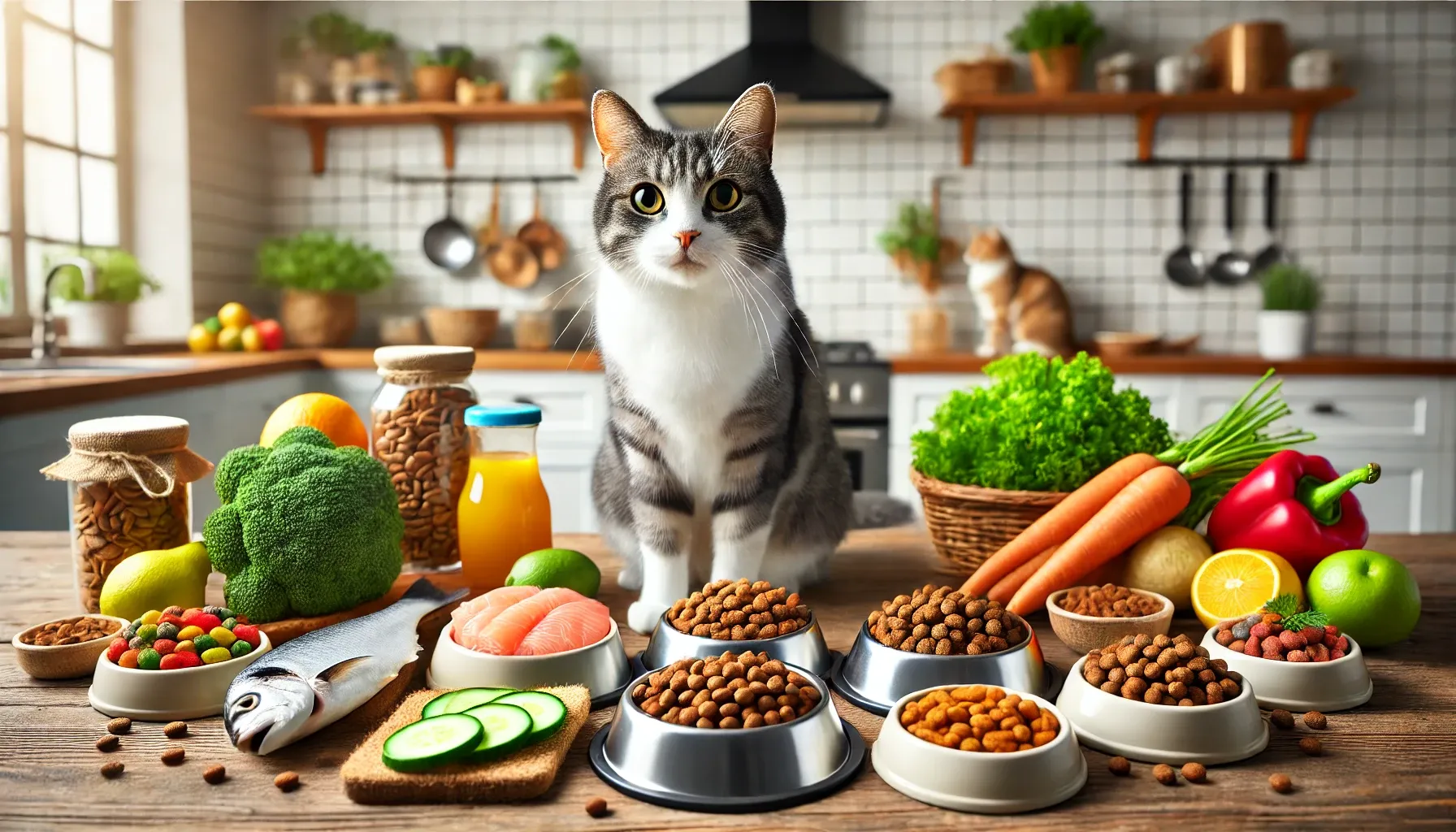1. Commercial Cat Foods: Wet and Dry Options
When selecting cat food from the store, you’ll often come across two main categories: wet food and dry kibble. Both have their benefits:
Wet Food: This type of food is typically higher in moisture, which is beneficial for cats who do not drink enough water. Wet food usually contains higher protein levels and is closer to the natural prey of cats in texture and taste.Dry Food: Dry kibble is convenient and easy to store. It’s good for maintaining dental health due to its crunchy texture, but it’s crucial to ensure it contains high-quality ingredients without excessive fillers like corn or soy.
2. Natural and Homemade Cat Foods
If you want to take control of your cat’s diet, you can prepare homemade meals that align with their nutritional needs. A balanced diet for cats should include:
Protein Sources: Cats need animal-based proteins, so incorporating chicken, turkey, and fish (such as salmon or tuna) is essential. Raw diets are popular but must be carefully prepared to avoid health risks.
Fats: Essential fatty acids, like omega-3 and omega-6, can be found in fish oils or flaxseed oils, promoting healthy skin and a shiny coat.Vegetables and Supplements: While cats don’t need many vegetables, adding small amounts of carrots or pumpkin can provide fiber. Vitamin supplements may be necessary to ensure your cat gets taurine, an amino acid crucial for their health.
3. Foods to Avoid
Not all human foods are safe for cats. Some toxic foods include:
Chocolate: Contains theobromine, which is poisonous to cats.Onions and Garlic: These can damage a cat’s red blood cells.
Dairy: Many cats are lactose intolerant, so milk and cheese can cause digestive upset.
4. Choosing the Right Food for Your Cat’s Life Stage
Kittens: Kittens require higher calorie food with more protein and fat to support their rapid growth.Adult Cats: A balanced diet with moderate levels of protein and fat is ideal to maintain a healthy weight and muscle mass.
Senior Cats: Older cats may need food with joint-supporting nutrients like glucosamine or lower-calorie formulas to prevent obesity.
5. Specialty Diets for Cats with Health Conditions
Some cats may require specialized diets due to certain health conditions. It's important to work with your veterinarian to identify the best food for these specific needs:
Weight Management: Overweight cats may benefit from low-calorie, high-fiber foods that help them feel full while reducing calorie intake.Urinary Health: Cats prone to urinary issues might require foods with lower magnesium levels and ingredients that promote urinary tract health by maintaining the right pH balance.
Allergies: Cats with food allergies or sensitivities can benefit from limited ingredient diets or hypoallergenic foods that exclude common allergens like grains, chicken, or beef.
Specialized diets can play a crucial role in managing your cat’s health, ensuring they stay comfortable and thrive despite their medical challenges.

